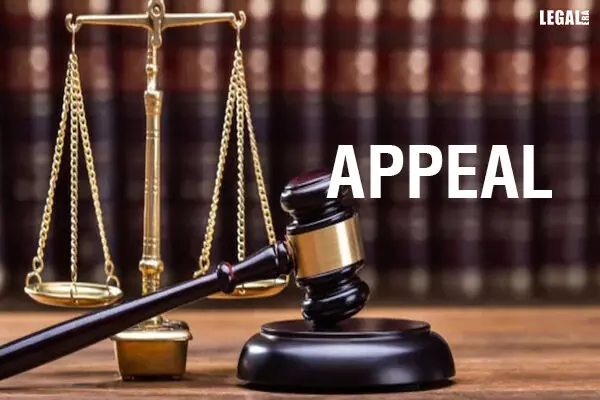- Home
- News
- Articles+
- Aerospace
- Agriculture
- Alternate Dispute Resolution
- Banking and Finance
- Bankruptcy
- Book Review
- Bribery & Corruption
- Commercial Litigation
- Competition Law
- Conference Reports
- Consumer Products
- Contract
- Corporate Governance
- Corporate Law
- Covid-19
- Cryptocurrency
- Cybersecurity
- Data Protection
- Defence
- Digital Economy
- E-commerce
- Employment Law
- Energy and Natural Resources
- Entertainment and Sports Law
- Environmental Law
- FDI
- Food and Beverage
- Health Care
- IBC Diaries
- Insurance Law
- Intellectual Property
- International Law
- Know the Law
- Labour Laws
- Litigation
- Litigation Funding
- Manufacturing
- Mergers & Acquisitions
- NFTs
- Privacy
- Private Equity
- Project Finance
- Real Estate
- Risk and Compliance
- Technology Media and Telecom
- Tributes
- Zoom In
- Take On Board
- In Focus
- Law & Policy and Regulation
- IP & Tech Era
- Viewpoint
- Arbitration & Mediation
- Tax
- Student Corner
- AI
- ESG
- Gaming
- Inclusion & Diversity
- Law Firms
- In-House
- Rankings
- E-Magazine
- Legal Era TV
- Events
- News
- Articles
- Aerospace
- Agriculture
- Alternate Dispute Resolution
- Banking and Finance
- Bankruptcy
- Book Review
- Bribery & Corruption
- Commercial Litigation
- Competition Law
- Conference Reports
- Consumer Products
- Contract
- Corporate Governance
- Corporate Law
- Covid-19
- Cryptocurrency
- Cybersecurity
- Data Protection
- Defence
- Digital Economy
- E-commerce
- Employment Law
- Energy and Natural Resources
- Entertainment and Sports Law
- Environmental Law
- FDI
- Food and Beverage
- Health Care
- IBC Diaries
- Insurance Law
- Intellectual Property
- International Law
- Know the Law
- Labour Laws
- Litigation
- Litigation Funding
- Manufacturing
- Mergers & Acquisitions
- NFTs
- Privacy
- Private Equity
- Project Finance
- Real Estate
- Risk and Compliance
- Technology Media and Telecom
- Tributes
- Zoom In
- Take On Board
- In Focus
- Law & Policy and Regulation
- IP & Tech Era
- Viewpoint
- Arbitration & Mediation
- Tax
- Student Corner
- AI
- ESG
- Gaming
- Inclusion & Diversity
- Law Firms
- In-House
- Rankings
- E-Magazine
- Legal Era TV
- Events
Mere thought that Auditor will file an appeal not a reason for delay : ITAT

Mere thought that Auditor will file an appeal not a reason for delay : ITAT
The petitioner had contended the circumstances were beyond its control
The Chennai bench of the Income Tax Appellate Tribunal (ITAT) has held that the mere impression that the auditor will file an appeal is not a sufficient cause and refused to condone the delay.
The assessee Devaraj Construction was time-barred by 407 days in filing the appeal before the tribunal. It filed a petition for condonation of the delay and averred that all along the income tax matters were dealt with by S Muthiah. Since he died in March 2015, there was no proper coordination between his office and the appellant firm in absence of proper guidance. Also, as the firm was dissolved, there was no communication among the partners and due to a loss, the partners left the business and there was no working partner.
The petitioner submitted that since the firm did not have any assets, there was no proper understanding between the partners. The delay was neither willful nor wanton but due to circumstances beyond the control of the petitioner.
ITAT viewed that when the department started pressurizing for payment of demand, the managing partner consulted tax practitioners who advised filing an appeal before the tribunal. The reopening of the assessment after a period of four years was prima facie incorrect, as there was no failure to disclose the material facts fully and truly at the time of the original assessment.
On receiving the show-cause notice for tax payment, the assessee enquired with the auditor's office. It realized that no appeal had been filed against the assessment. It was evident that the assessee was not serious about pursuing the appeal either before the Commissioner of Income Tax (Appeals) or ITAT.
The bench comprising V Durga Rao (judicial member) and G Manjunatha (accountant member) observed that there was no sufficient cause to condone the delay. Dismissing the appeal filed by the assessee, it rejected the petition for condonation of delay.



